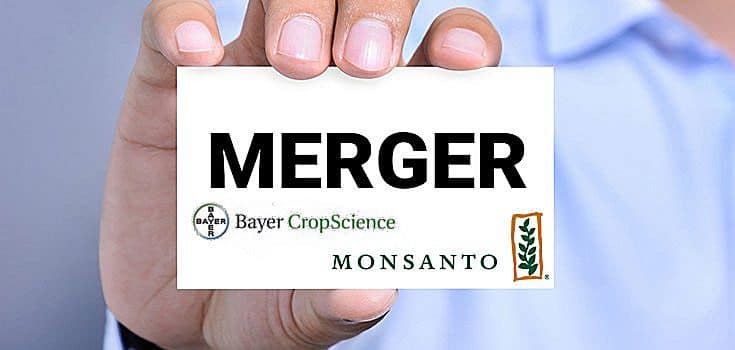THOMAS PERRONE – Pubblicato il 20 MAG 2016 – LIFE GATE
The effects of 'Bayersanto' on agriculture
The multinational chemical and pharmaceutical company Bayer, which is based in Germany, has announced that it has launched a takeover bid (opa) to complete a merger & acquisition with the American company Monsanto, a leading company in the production of pesticides, herbicides and genetically modified seeds that are resistant to the pesticides it produces. Big fish eat little fish. In fact, a year ago, Monsanto tried unsuccessfully to acquire the Swiss competitor Syngenta and now it could "pay" the consequences. The merger of the two giants considered "poison" for those who fight for environmental protection would give life to the largest producer of seeds and agricultural chemicals in the world, with a turnover of 67 billion dollars a year. In this way, Bayer would see the turnover deriving from the agricultural sector increase from the current 22 to 40 percent. The two companies did not comment.
The announcement of the aspirin multinational came in conjunction with the announcement of the second referral by the European Union (EU) Standing Committee on Plants, Animals, Food and Feed (Plants, Animals, Food and Feed Committee) on the renewal of the authorization to use glyphosate, one of the most widely used herbicides in the world. The 28 countries that are part of it, in fact, disagreed and a vote would not have led to the necessary majority. Germany, in particular, the motherland of Bayer, would have abstained in the event of a vote. To this, it should be added that Monsanto held the manufacturing patent for the herbicide Roundup, which contains glyphosate as an active ingredient, until 2001.
In addition to glyphosate, the keyword is Ttip
The Bayer-Monsanto transatlantic merger, among other things, in addition to being potentially linked to the glyphosate issue in the EU, would also appear to be intertwined with the negotiations on the TTIP, the agreement that could "weaken democratic decision-making processes to the advantage of multinationals", as reported by the German weekly Der Spiegel. In particular, the treaty, according to those who declare themselves against it, would lower the quality and safety standards which at present "protect" the environment and the health of European citizens. An objective, for the negotiators, which would be achieved through the adoption of laws that would eliminate the regulatory differences that exist between the European Union and the United States, to the benefit of the latter where standards are decidedly lower.
The eventual transaction shouldn't encounter too many obstacles with regard to the rules protecting competition: "On the antitrust side, I don't think there will be too many problems," said Lutz Krafft, one of the lawyers of the consulting firm ChemAdvice GmbH who also worked for Bayer. Against this – as reported by Bloomberg – an increase in controls on the few companies on a global scale that control the biotech industry is conceivable.
Related news: Bayer-Monsanto Bid May Trigger More Scrutiny for Rival Deals
Bayer: confirmation of submission of offer to Monsanto for merger
Glifosato: la Francia si ribella. E l’Italia?
